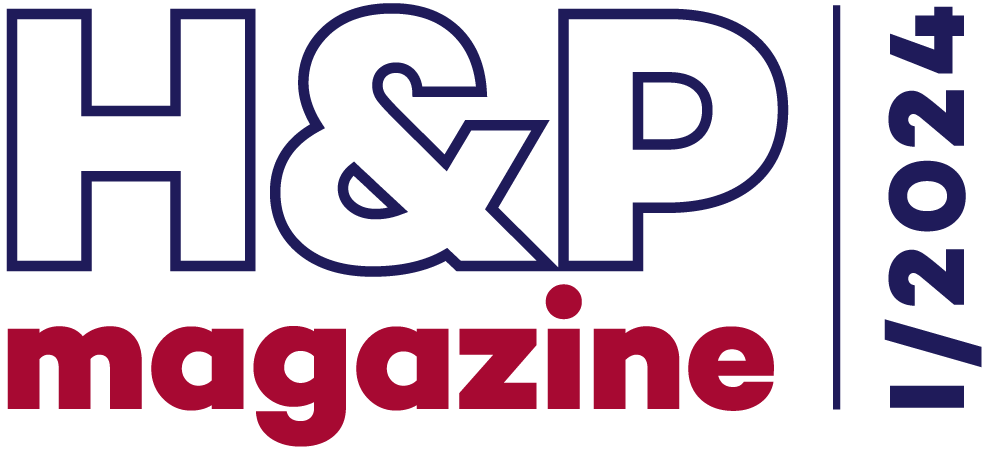Does your company claim advertising costs as a tax-deductible expenses? Do you exercise the entitlement to VAT deduction? This is indeed possible. However, as the decisions of the Supreme Administrative Court show, it is necessary to provide proper (supporting) documentation during a tax audit to prove that the marketing services were actually rendered in accordance with the contract. The mere existence of invoices and signed contracts does not automatically establish the tax-deductibility of the costs.
Companies spend large amounts of money on marketing services, believing that in order to prove the right to deduct VAT or the tax-deductibility of costs for such services, it is sufficient to provide a tax authority with an invoice, or a contract, an order or a delivery note.
Unfortunately, these types of evidence are only a necessary basis and may not be sufficient in the event of a tax audit. In our experience, the current practice and approach of tax authorities are very extensive and formalistic, even by the standards of other OECD countries.
The tax authority relies on the decisions of the administrative courts, which set high demands on proving the tax-deductibility of costs or the right to deduct VAT for marketing services received.
Considering tax audits of multinational companies that we have assisted in, it is safe to say that the Czech Republic and the approach of our tax administration is currently one of the strictest. Cases that are comparable in terms of content, amounts and documentation and that are accepted by the local tax administration in another EU member state may not be accepted by the tax administration in the Czech Republic.
Let’s have a look at some practical examples where companies have suffered the consequences of insufficient documentation and failure to prove that the advertising was carried out under a contract. As a result, they were subsequently unable to claim advertising or marketing costs as a tax-deductible expenses or to exercise the right to deduct VAT. The tax authority relies on the decisions of the administrative courts, which set high demands on proving the tax-deductibility of costs (or the right to deduct VAT) for marketing services received.
The shoulders couldn’t take the weight
For example, the Supreme Administrative Court examined advertising at motocross races in the Czech Republic and abroad. Among other things, a company paid to have its logo placed on a racer’s jersey, specifically on his left and right shoulders and on the bike itself. The company signed an advertising contract for one season. However, the racer was injured during the season and could not present the logo of the company as agreed in the contract, which, however, did not cover this exceptional situation.
The tax authorities then initiated a VAT audit, claiming that the company had failed to prove that it had received the advertising services under the contract. The company argued that, despite the injury, the racer had worn the jersey during his rehabilitation in a gym and swimming pool and presented the logo at races where he did not compete due to his injury. The company even provided precise photo documentation and witness interrogations also proved that the advertising (promotion) had been provided.
Unfortunately, neither the tax authorities nor the regional court were receptive to this argument. Although the Supreme Administrative Court (SAC) later accepted that the company was right and was able to prove that the promotion had taken place despite the racer’s injury, albeit not directly on the track during the race, the court still did not recognize the right to deduct VAT. This was because the evidence did not show that the promotion had taken place to the extent required by the contract, as the company’s logo was not present on the left and right shoulders of the racer.
Master, speak! The screenshots be revealed!
The SAC did not confirm the tax-deductibility of advertising costs as the company failed to prove that it actually received online advertising (PPC advertising in Google AdWords; keyword analysis and optimization) to the extent claimed.
Although the company provided supporting documentation directly from the Google AdWords system, the SAC did not accept it as evidence substantiating the scope of the advertising services received. According to the SAC, these were simple data records that could not, on their own, prove the actual receipt of the advertising. The SAC considered it necessary for the company to substantiate the advertising with screenshots showing the advertising directly in Google’s search engine. Even though the company submitted the screenshots for each tax document, the SAC concluded that they did not prove the extent of the advertising services received, as they were all identical and always contained the same data (both the time spent on each page searched and the data on the front page regarding the number of searched results).
The court wondered why the company had repeatedly received confirmations of advertising substantiated with screenshots which did not appear to differ from each other or did not even have different dates. According to the duty of due managerial care, the company should have checked whether the advertisement (worth hundreds of thousands of dollars) was actually provided or should have chosen or required a different method of documentation from the supplier.
Audits must be done, whether at a stadium or a shopping center
The third example concerns a company that substantiated advertising in a football stadium and a department store. In particular, the tax authorities had doubts as to whether the company's presentation at the specified locations had taken place during the period for which the company had paid the suppliers.
The photographs submitted to the SAC did not support the tax-deductibility of the advertising expenses because they did not show that they were taken in different months and in clearly identifiable locations. The witness testimony did not help either. The SAC held that the taxpayer did not have to prove the receipt of each individual part of the advertising services, as the case involved the broadcasting of a recurring advertisement in several cities over a period of several months. However, this does not mean that the taxpayer can avoid proving the scope of the advertising received.
According to the SAC, the company could have established an internal audit system whereby its employees would continuously check the receipt of the advertising services at random intervals at various locations where the advertising was to be provided. Ideally, records of these checks should also be kept. However, according to the Court, the company’s failure to implement such internal controls over advertising was to its detriment. In addition, the SAC considered that the company's investment in advertising, which amounted to approximately 30% of its declared annual income, was highly unusual, as the light advertising was broadcast at night and did not target a specific customer base, and the advertising in the football stadium may not even have been well visible. For these reasons, the SAC considered the advertising expenses to be tax non-deductible.
Steps to take
All three cases heard by the Supreme Administrative Court show that the tax authorities, or the administrative courts themselves, are quite demanding when it comes to proving the tax-deductibility and the right to deduct VAT on marketing services. As a result, we recommend following a few points that will help prove the actual receipt of the advertising services or, if necessary, the scope of the services.
In order to provide the tax authorities with sufficient evidence of the tax-deductibility of the expenses in question or of the right to deduct VAT, it is necessary to archive all related communications with the supplier and other evidence of the receipt of marketing services, including bank statements or documentation of the media campaign, in addition to invoices, contracts or orders.
So when it comes to taxes, the golden rule is: "Be prepared and you will be safe." Make sure you have a well-drafted contract with the advertising vendor. Make arrangements to audit the services you receive. Agree with the vendor on their obligation to provide you with pre-agreed and defined means of proof. In case of a change in (not only) the scope of services, it is advisable to reflect this change e.g. in an amendment to the contract.
In addition, the administrative practice and the approach of the tax authorities is evolving. Evidence that would have been sufficient a few years ago is no longer sufficient today, and the tax authorities require new evidence as case law evolves, for example, to prove the reasonableness of a price, the economic benefit of advertising costs, etc.
The success of the tax authorities in litigation depends on your ability or inability to explain why you chose a particular marketing services provider, why you did not evaluate more bids, or why you accepted a bid that was far from the cheapest.
Although it is of course possible to argue for complete contractual freedom in commercial relations, which is undoubtedly an unrestricted right of the contracting parties, the administrative courts, through repeated and consistent case law, have established different rules for tax purposes with regard to the evidence required to prove the inclusion of the relevant costs in the corporate tax base (or to exercise the right to deduct VAT). Therefore, when it comes to proving the tax-deductibility of costs or the right to deduct VAT on marketing services, the more you have, the better.
Extensive experience in tax litigation
The HAVEL & PARTNERS team focusing on prevention and resolution of tax disputes comprises approximately 15 attorneys-at-law and tax advisors, including experts with many years of experience from the Big Four consultancies and the judiciary (including the Supreme Administrative Court), and with unique know-how from the top tax administration authorities (tax administration methodology at the General Financial Directorate and the agenda of the Appellate Financial Directorate). The close integration of legal and tax services – the unique combination of a tax team and a strong law firm – allows us to provide clients with a top-quality comprehensive service in one place. With our services, clients receive a completely new dimension and higher added value, including extremely valuable tax insights from the “other side”, i.e. from the perspective of the tax authority and bodies that decide on tax disputes.









